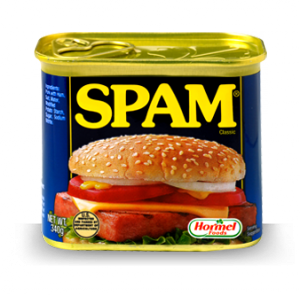 Comment spam is something that every WordPress blogger must learn to deal with. I guess you could say it’s a badge of honor or sorts, as it means spammers view your blog as being authoritative. But allowing such comments on your site can have a negative impact on its search rankings.
Comment spam is something that every WordPress blogger must learn to deal with. I guess you could say it’s a badge of honor or sorts, as it means spammers view your blog as being authoritative. But allowing such comments on your site can have a negative impact on its search rankings.
Tell-Tale Signs of Comment Spam:
- Username contains keyword instead of an actual name (e.g. buy shoes online, California lawyer, roofing contractors, etc.
- Comment is generic and not related to the actual post topic.
- Comment contains one or more links to irrelevant pages.
Moderate All New Comments
The first step in blocking comment spam on WordPress is to adjust the settings so all new comments must be manually approved before publishing. By default, all new comments submitted on WordPress are automatically approved, opening the flood gates to spam. You can change this, however, by logging into your website and choosing Settings > Discussion > and check the box next to “Comment must be manually approved.”
Close Comments on Old Posts
WordPress has a built-in feature which allows you to close comments on old posts and articles. While under the Discussion setting of your blog, check the box next to “Automatically close comments on articles older than _ days.” 14 days seem to be a good number that discourages comment spam, but you are free to adjust this to your preference.
Block Comments From Outside Referrers
Spammers often use automated programs and scripts to blast thousands, or even tens of thousands, of comments to WordPress blogs. You can deter this type of manipulative behavior by adding the following line of code to your .htaccess file. Basically, this code prevents comments from being submitted outside of your actual website. So if a spammer attempts to leave a comment via an automated program, he or she will be blocked.
<IfModule mod_rewrite.c>
RewriteEngine On
RewriteCond %{REQUEST_METHOD} POST
RewriteCond %{REQUEST_URI} .wp-comments-post.php*
RewriteCond %{HTTP_REFERER} !.*yourdomainname.* [OR]
RewriteCond %{HTTP_USER_AGENT} ^$
RewriteRule (.*) ^http://%{REMOTE_ADDR}/$ [R=301,L]
</IfModule>
Spam Plugins
A third way to protect your WordPress blog from comment spam is to install an anti-spam plugin. Akismet is one of the most popular and widely used anti-spam plugins, and it’s even included in every fresh WordPress install. The only downside is that you’ll have to pay to use Akismet for commercial purposes — meaning if your site generates revenue in any way, shape or form, you must pay $5/month for the Business edition or $50/month for the Enterprise edition.
Have any other spam-fighting tips you’d like to share with our community? Let us know in the comments section below!


Blog commenting for SEO is not all bad, but it depends on how it is done. This post was mostly to help people realize it is OK to not approve a comment that is only meant for SEO.
I just find out that using keywords in the name field is spam. Your post is very informative on how to manage WordPress comment spam
This is very important for me . I will try to prevent my site for spam comments.